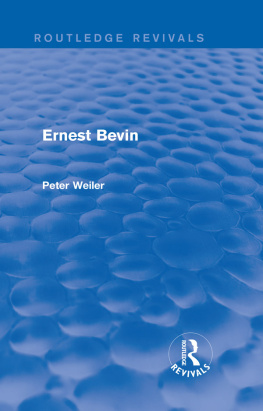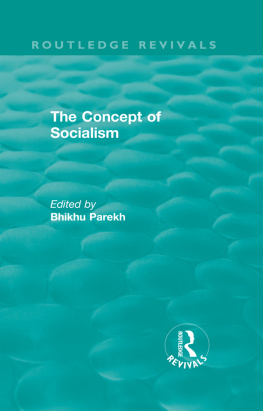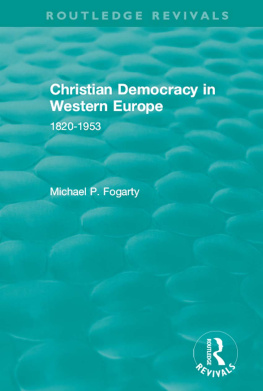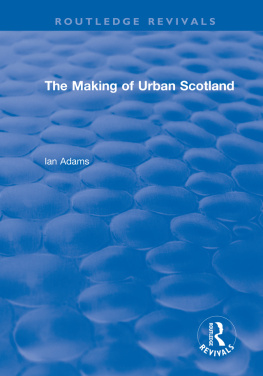First published in 1992
by Routledge
11 New Fetter Lane, London EC4P 4EE
This edition published in the Taylor & Francis e-Library, 2010.
To purchase your own copy of this or any of Taylor & Francis or Routledges collection of thousands of eBooks please go to www.eBookstore.tandf.co.uk.
Simultaneously published in the USA and Canada
by Routledge
a division of Routledge, Chapman and Hall Inc.
29 West 35th Street, New York, NY 10001
1992 Harvie Ferguson
All rights reserved. No part of this book may be reprinted or
reproduced or utilized in any form or by any electronic,
mechanical, or other means, now known or hereafter
invented, including photocopying and recording, or in any
information storage or retrieval system, without permission in
writing from the publishers.
British Library Cataloguing in Publication Data
Ferguson, Harvie
Religious transformation in western society: the end
of happiness.
1. Religion
I. Title
306.6
Library of Congress Cataloging in Publication Data
Ferguson, Harvie.
Religious transformation in western society: the end of happiness
Harvie Ferguson.
p. cm.
Includes bibliographical references and index.
1. HappinessReligious aspects. 2. Religion and sociology.
I. Title.
BL65.H36F47 1991
306.6dc20 9113665
CIP
ISBN 0-203-83030-X Master e-book ISBN
ISBN 0-415-02574-5
ACKNOWLEDGEMENTS
I have tried to acknowledge all my principle debts in the Bibliography. However, as my intention has been to range as widely as possible and to pay little regard to disciplinary boundaries, I have no doubt failed to note many publications that played a part in what follows. For those omissions let me apologize in advance.
What cannot appear in any bibliography and yet, without which, no book of this sort could possibly be written is the library upon which the author has depended for so much source material. At a time when Glasgow University Library, like so many other academic libraries, is faced with declining resources and arbitrary cuts in its acquisitions, it is important to realize that future generations of scholars will find it increasingly difficult to carry out the kind of research which I have had the good fortune to attempt. I have benefited from an academic tradition which I fear has already come to an end.
What does continue and is a pleasure, therefore, to acknowledge is the tireless and friendly service of the staff of Glasgow University Library; after I had developed a realistic fear of its unreliable lifts, they made my repeated journeys to its seventh floor the easier to bear.
I would also like to thank my students, who bore my enthusiasms with considerable fortitude. I hope this will answer, somewhat more adequately than I was able to at the time they were asked, the awkward questions with which they interrupted my lectures.
INTRODUCTION
The End of Happiness
To speak of Happiness is to invite ridicule. It is not just an outmoded concept, superseded by an entire vocabulary of technically more precise terms; it invokes a vanished and degraded world. Even advertisers seem embarrassed by the word, and in offering every imaginable human good they yet remain shy of promising Happiness. This, surely, rather than indicating any residual good taste or modesty on their part, betrays something deeply ambivalent in the notion of Happiness itself. The modern commodity, the advertiser knows, cannot afford to be associated with the past. And the idea of Happiness, as Happiness itself, is undeniably old.
The word is, seemingly, an anachronism. The meaning it expresses no longer has behind it the compulsion of an undeniable reality. It retains, apparently, a purely lexicographical significance. Even so, persisting by inertia, it continues to carry with it the burden of undischarged meaning. It has refused to be translated into some innocuous modern equivalent; pleasure, satisfaction, fulfilment, are labels we attach to particular segments of experience and lack the radical inclusiveness of Happiness (and its related spiritual terms, Bliss, Joy, Ecstasy), which designates a completely autonomous mode of being. Yet a sufficient trace of such a world remains (in memory or in imagination) to make of Happiness a disturbing idea. It is a world we pretend no longer exists, but whose existence we readily confirm in the faintly embarrassed reaction with which we greet its occasional disclosure.
This is all, no doubt, a little exaggerated. In terms of everyday language who would not, after all, still assent to Augustines simple declaration that We all certainly desire to live happily?
Now the chief good of man cannot be bodily pleasure, not absence of pain, not strength, not beauty, not swiftness, or whatever else is usually reckoned among the goods of the body.
Happiness is a term used exclusively in relation to the experience of a transcending reality, and ought not to be confused with any limited, or conditional, or relative enjoyments of whatever sort. For Augustine the matter is clear: to reach God is Happiness itself.
It is just this proximity to God that makes us uncomfortable. God and Happiness, it seems, are indissolubly linked. Interestingly, however, in abandoning the language of Happiness, we have not simultaneously renounced the privilege of talking about God. Paradoxically, since He was pronounced dead, the ceaseless philosophical chatter in His honour has been carried forward with undiminished vigour. God is continually rediscovered as an urgent and novel object of intellectual curiosity. Modern philosophers would be lost without Him, and modern scientists, as much as modern novelists, delight in His quirkiness.
The paradox, formally speaking at least, is easily resolved. Happiness is a personal relation to God; but God is. Whether or not we seek Happiness we can acknowledge the necessary existence and essential characteristics of God. God is greater, in other words, than our rejection of Him. This is just a further demonstration, in fact, of one of His attributes; namely that aspect of His creation we call human freedom, or, in an older vocabulary, sin.
The difficulty, however, is not purely formal; it is also historical and sociological. In the formation of the west (which is no longer a grandiose or vacuous term), Christianity played a central role. In proposing a novel conception of God it sought to unite two fundamentally different ideas: God as creator, as the first cause of all material things; and God as personal salvation, as the end for which human existence was contrived. The ultimate significance and fate of the individual was thus linked, necessarily and essentially, to a cosmic principle. Human Happiness was found in the love of that which, as both terminus a quo and terminus ad quem of all existence, stood apart from and superior to our immediate experience of the world.
Superficially at least it seems as if our resolve to do away with God is half-hearted. Or, rather, it is a gesture made wholly with the heart but not with the head. It is the promise of personal salvation, and not the God of natural necessity, that we have foregone, or would like to forego. This seems to be a somewhat perverse version of the The notion of God, that is to say, far from adding to our understanding of the world in which we find ourselves, in fact tends to constrain the operation of purely human, natural reason. Religion, where it does persist, does so in answer to an unquenchable appetite for personal salvation; it offers Happiness, not Enlightenment.










